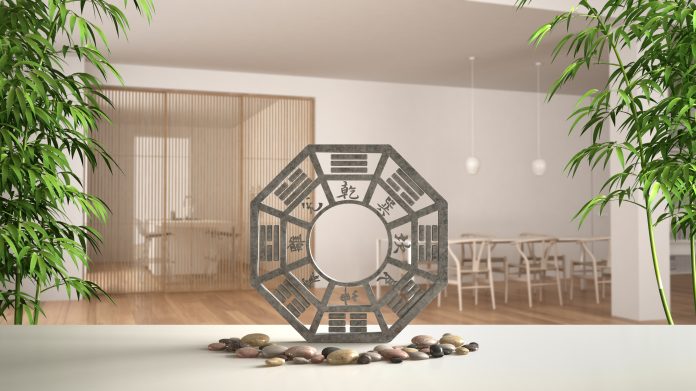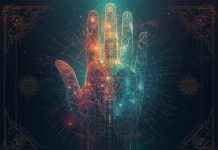Introduction: Why Lucky Charms Still Matter
From rabbit’s feet tucked into pockets to red strings tied on wrists, humans have always believed in the power of charms. Whether you call them talismans, amulets, or Feng Shui cures, the idea is the same: small objects can carry big meaning. Feng Shui takes this a step further by placing lucky charms strategically in your environment to shape energy flow—or Chi.
Skeptics roll their eyes and say it’s just superstition. But anyone who’s ever worn a piece of jewelry from a loved one or kept a “good luck pen” for exams knows the truth: symbols have power. They soothe, focus, and attract. And when combined with Feng Shui principles and psychic intention, lucky charms aren’t just cute trinkets—they become tools for transformation.
The Psychology and Energy of Charms
Lucky charms work on two levels: the subconscious mind and the energetic field. Psychologically, a charm reminds you of your intention, boosting confidence and lowering stress. Energetically, charms act like tuning forks—they resonate with certain frequencies and attract matching vibrations.
One woman I knew always wore a pendant from her grandmother. Every time she touched it, she felt safe and guided. For her, it wasn’t just jewelry—it was a psychic anchor.
Psychology Today points out that belief in luck or symbols can actually improve performance because of the confidence it brings. Combine that with Feng Shui, and suddenly your charm isn’t just psychological—it’s energetic.
Feng Shui Meets Symbolism
Feng Shui, the ancient Chinese art of arranging environments, focuses on how Chi flows through space. Lucky charms placed strategically act as “Chi magnets,” attracting prosperity, protection, or harmony depending on where they’re placed.
A family I read for hung a red tassel over their front door. They weren’t sure what to expect, but within weeks they noticed fewer arguments at home. Was it the tassel, the intention, or both? Feng Shui teaches us it doesn’t matter—the charm became a symbol that shifted energy.
Even VeryWellMind acknowledges that environmental symbols can shape emotional states. Feng Shui simply takes that further by giving structure to placement.
Popular Lucky Charms in Feng Shui (With Fresh Angles)
Coins with Red String
Traditionally tied together with red thread to symbolize wealth flow. Fresh spin: place them near your laptop or workspace to invite steady financial growth in the digital age.
Laughing Buddha
Symbol of joy and abundance. A shop owner once placed a Laughing Buddha near her register. Within a month, not only did sales increase, but she noticed customers seemed happier to linger.
Crystals (Amethyst, Citrine, Jade)
Feng Shui assigns crystals to specific areas (jade for wealth, amethyst for protection). Psychics often “charge” crystals with intention, combining their natural energy with focused psychic will.
Evil Eye and Mirrors
Used to deflect negativity. One client placed a mirror facing her door after constant office gossip drained her. She reported the chatter seemed to stop bothering her—it “bounced right off.”
As MindBodyGreen explains, crystals and symbolic objects amplify the energy you focus into them.
How to Personalize Your Charms
Not every charm resonates with every person. The true magic comes from intention. A teacher I know keeps a tiny owl figurine on her desk to channel wisdom and patience. A musician carries a small bell in his pocket, saying it keeps his creativity flowing.
Psychics often recommend choosing charms that align with your personal goals. If you want prosperity, you might feel drawn to coins or citrine. If you want love, rose quartz may call to you. The key: let your intuition pick, not just tradition.
Lucky Charms Beyond the Home
Charms aren’t only for the living room or entryway.
At work: A bamboo plant or coin set on your desk can boost focus and invite financial opportunity.
While traveling: Pocket stones like black tourmaline keep negative energy at bay.
Digital Feng Shui: Your laptop background can act as a charm. One entrepreneur swapped her screensaver to a prosperity frog image, then landed a contract she’d been chasing for months.
Charms evolve with us. What once hung on doors can now glow on phone screens.
The Psychic Layer of Charms
Psychics see charms not just as symbolic objects but as energy tools. Many psychics “charge” charms with protective energy or healing intention before passing them to clients.
One client carried a rose quartz I had charged during a session. She later told me it helped her feel calm and steady through a difficult breakup. The charm itself wasn’t the healer—the psychic intention layered into it amplified her own resilience.
Oprah Daily reminds us that living authentically often means surrounding ourselves with objects that carry meaning. Psychic work simply adds an energetic dimension.
Mistakes People Make With Lucky Charms
Treating them like magic wands. A charm amplifies intention, it doesn’t replace action.
Clutter. Too many charms create chaos, blocking rather than guiding energy.
Neglecting cleansing. Just like a phone needs recharging, charms need energetic resets.
One woman left her Feng Shui coins dusty and buried in paperwork, then wondered why money wasn’t flowing. Once she cleaned, blessed, and repositioned them, she noticed unexpected financial opportunities popping up.
How to Activate and Cleanse Your Charms
Cleansing and activation are essential.
Cleansing methods:
Place under full moonlight.
Rinse with salt water or smoke cleanse with sage.
Hold in your hands and breathe out any stale energy.
Activation methods:
Hold charm to your heart, say: “This charm now carries the energy of [intention].”
Visualize light filling the object.
Place it intentionally in the right Feng Shui area (wealth corner, love sector, etc.).
Think of it like charging your phone—without a recharge, your charm loses power.
Feng Shui Stories and Case Studies
A couple hung a red string above their bedroom door. They later reported fewer fights and more intimacy.
A restaurant owner placed a money frog by her cash register and noticed tips increasing within a week.
A grieving daughter wore a locket her psychic charged with energy. She described feeling “wrapped in love” whenever she touched it.
These aren’t fairy tales. They’re real experiences where small charms became big catalysts.
Lucky Charms as Modern Spiritual Tools
In our fast-paced digital world, charms remain relevant because they remind us to pause, focus, and believe in the unseen. They combine ancient wisdom with modern life, and when paired with psychic insight, they act as amplifiers of intention.
Feng Shui shows us where to place the charm. Psychic practice teaches us how to charge it. Together, they transform charms into bridges between thought and reality.
Conclusion: Small Symbols, Big Shifts
Lucky charms aren’t childish trinkets. They’re sacred reminders, energetic anchors, and psychic allies. When placed with Feng Shui wisdom and activated with intention, they shift the flow of energy in powerful ways.
The next time you hang a red tassel, hold a crystal, or place a Buddha on your desk, remember—you’re not just decorating. You’re shaping energy, aligning with intention, and inviting luck into your life.
Feng Shui FAQ
Basics of Feng Shui
What is Feng Shui and where did it originate?
Feng Shui is an ancient Chinese practice of arranging spaces to harmonize energy, or Chi, and it dates back over 3,000 years.What does “Chi” mean in Feng Shui?
Chi is the life force energy that flows through everything. Feng Shui balances this flow to support health, prosperity, and peace.How does Feng Shui differ from interior design?
Interior design focuses on aesthetics. Feng Shui focuses on energy flow, placement, and symbolism, though both overlap in creating harmony.Is Feng Shui a religion or a philosophy?
Feng Shui is not a religion. It’s a philosophy and system of environmental psychology rooted in Taoist principles.Can Feng Shui be practiced without belief in spirituality?
Yes. Even skeptics find Feng Shui useful, since its principles encourage decluttering, balance, and mindful space organization.How long does it take to see results from Feng Shui changes?
Some people notice shifts immediately, while others experience gradual improvements over weeks or months.Do I need to hire a professional Feng Shui consultant?
Not necessarily. Beginners can start with simple Bagua maps and decluttering. A consultant helps with deeper, tailored advice.Can I practice Feng Shui in an apartment or rented space?
Absolutely. Portable cures like crystals, mirrors, and plants make Feng Shui adaptable even without permanent renovations.Is Feng Shui compatible with modern lifestyles?
Yes. Feng Shui evolves. Today, even digital spaces—like phone wallpapers—are treated as energy fields.What are the five elements in Feng Shui?
Wood, Fire, Earth, Metal, and Water. Balancing these elements in your space helps harmonize Chi.
Feng Shui Tools and Symbols
What is the Bagua map and how do I use it?
It’s an energy map divided into nine areas representing wealth, love, career, health, etc. Place it over your floor plan to locate energy zones.How do mirrors work in Feng Shui?
Mirrors reflect and redirect Chi. They can double abundance or bounce away negativity, depending on placement.Why are plants important in Feng Shui?
Plants represent growth, life, and vitality. They purify air and attract fresh Chi into your home.What are Feng Shui cures and how do they work?
Cures are symbolic tools—like coins, crystals, or wind chimes—used to correct or enhance energy flow.Can crystals be used in Feng Shui?
Yes. Crystals like jade, citrine, and amethyst are popular for attracting wealth, protection, and harmony.What does the Laughing Buddha symbolize?
Joy, abundance, and good fortune. It’s often placed in entryways or living rooms to welcome happiness.What is a money frog and where should it be placed?
A three-legged toad holding a coin. Place it near the entrance, facing inward, to invite wealth.How do wind chimes shift energy in Feng Shui?
They break up stagnant Chi and spread positive vibrations, especially when placed near doors or windows.Are colors important in Feng Shui?
Yes. Each color connects to an element—red for fire, green for wood, blue for water—and can shift energy balance.What does the dragon symbol mean in Feng Shui?
The dragon represents strength, courage, and protection. Place it in living spaces to inspire authority and luck.
Feng Shui for Wealth and Prosperity
Where is the wealth corner in Feng Shui?
It’s the Southeast area of your home or room, linked to abundance and prosperity.Which lucky charms attract money energy?
Coins, wealth vases, citrine crystals, and the Laughing Buddha are traditional prosperity charms.How do I use Feng Shui coins properly?
Tie them with red string (usually in sets of three or six) and place them in wallets, registers, or Southeast corners.Can a fish tank improve financial luck?
Yes. Flowing water with healthy fish symbolizes wealth flow, especially in the Southeast or North area.What colors attract wealth in Feng Shui?
Gold, purple, green, and red are considered wealth-attracting colors.Is a fountain good for prosperity?
Yes, especially when placed near the entrance or in the Southeast. Water symbolizes money flow.What is the significance of the Southeast corner in Feng Shui?
It represents wealth and abundance. Activating it attracts prosperity energy.Can digital wallpapers act as wealth charms?
Yes. Many people use prosperity symbols, like money frogs or gold ingots, as screen backgrounds.How does clutter affect financial energy?
Clutter blocks Chi. A messy wallet, desk, or Southeast corner can stagnate money flow.What are the best plants for abundance?
Lucky bamboo, money trees, and jade plants are traditional prosperity plants.
Feng Shui for Love and Relationships
Which area of the home represents love in Feng Shui?
The Southwest area is linked to love, relationships, and partnerships.How can I use rose quartz in Feng Shui?
Place pairs of rose quartz in the Southwest corner or bedroom to attract and nurture love.What colors improve romance energy?
Pink, red, and white are best for love and intimacy.Should I display single or paired objects for love luck?
Always paired. Two candles, two ducks, two pillows—pairs symbolize unity and partnership.What is the relationship corner of the Bagua?
The top right square of the Bagua map corresponds to relationships and love.How can Feng Shui help repair relationships?
Declutter the bedroom, use soft colors, and place symbols of harmony—like mandarin ducks—together.Do bedroom layouts matter for intimacy?
Yes. Beds should have equal space on both sides and no mirrors facing them.Should mirrors be in the bedroom?
Avoid mirrors facing the bed, as they create restlessness or invite a “third party” energy.How do candles improve love energy?
Candles symbolize passion and warmth. Red or pink candles in pairs boost romance.What is the significance of mandarin ducks in Feng Shui?
They symbolize lifelong love and loyalty. Place a pair in the bedroom for strong relationships.
Feng Shui for Health and Well-being
Which area of the home represents health in Feng Shui?
The center of the Bagua map, often called the Tai Chi, governs health and vitality.What colors support vitality?
Earth tones like yellow, beige, and light brown strengthen health energy.How does air quality affect Chi?
Fresh, clean air keeps Chi moving. Stale air stagnates energy and impacts health.Are there specific charms for protection and health?
Yes. Wu Lou gourds, black tourmaline, and protective amulets are traditional health protectors.Can Feng Shui reduce stress and anxiety?
Yes. Decluttering, soft lighting, and balanced elements create calm and reduce stress.Which crystals support healing energy?
Amethyst, jade, and clear quartz are widely used for physical and emotional healing.Is clutter linked to mental health in Feng Shui?
Yes. Clutter creates mental fog and anxiety. Clear space = clear mind.How does Feng Shui support restful sleep?
By placing the bed in a commanding position, reducing electronics, and using calming colors.Should electronics be kept out of the bedroom?
Yes. Electronics disrupt Chi and sleep quality.What foods align with Feng Shui principles?
Fresh, colorful, seasonal foods represent balance in the five elements.
Feng Shui for Career and Success
What is the career area on the Bagua map?
The North section relates to career and life path.How can Feng Shui help with job opportunities?
Activating the North with water features or career symbols can attract opportunities.Which symbols are good for career advancement?
Black turtles, flowing water, and career-related statues or images.Should my desk face the door?
Yes, ideally. This “command position” improves focus and career stability.How does lighting affect career energy?
Bright, balanced lighting energizes Chi and supports productivity.What objects should I avoid in a workspace?
Broken items, clutter, or sharp objects pointing at you—they drain or cut energy.Can Feng Shui boost creativity?
Yes. Activate the West area of your home or office with metal elements and art.How do I attract helpful mentors with Feng Shui?
The Northwest area governs helpful people. Place symbols like globes, coins, or gratitude notes there.Which colors are best for a productive office?
Blue and black support focus, while green stimulates growth and creativity.How do I use Feng Shui in a home office?
Keep the desk clear, face the door if possible, activate the North with water symbols, and ensure good natural light.





Fascinating read! The way Feng Shui interweaves colors, symbols, and even fruits to enhance life energy is truly captivating. I’ve always been intrigued by how much cultural significance is embedded into everyday objects.
Oh great, now we’re supposed to believe that oranges and red envelopes are going to magically improve our lives? This sounds like a bunch of pseudoscientific nonsense wrapped in cultural clichés.
The breakdown of Feng Shui elements such as yang energy, Chinese zodiac animals, and symbols like the Double Happiness Symbol is quite informative. It would be advantageous to delve into the philosophical underpinnings of Feng Shui to provide a more comprehensive perspective.
The article provides a concise overview of several Feng Shui symbols and their significance. I appreciate the inclusion of practical tips, such as painting your home orange or using the scent of oranges to enhance positive energy. These suggestions make the concept of Feng Shui more accessible to those unfamiliar with it.
The depth of significance attributed to various elements of Feng Shui is truly fascinating. Especially, the association of oranges with yang energy and prosperity resonates profoundly. The cultural richness and the meticulous symbolism are a testament to the profound wisdom inherent in ancient Chinese traditions. Integrating such practices into one’s life can indeed usher in positivity and balance. A beautifully written piece!
While the piece is well-written and informative, it would be great to have insights into how Feng Shui is applied in contemporary settings outside of Chinese culture. A global perspective could add additional layers of interest to the discussion.
The article does a good job of explaining the cultural significance of Feng Shui elements, but it oversimplifies the intricate philosophies behind these practices. A deeper dive into the historical context would have been more enlightening.
Are you seriously suggesting that painting my house orange will make me happier or that carrying coins will make me wealthier? It’s amusing how people cling to these outdated superstitions. Next, we should probably start sacrificing goats for better Wi-Fi.
The article covers a wide array of Feng Shui symbols and their meanings efficiently. However, I would suggest including some scientific perspectives or modern interpretations to balance the traditional views presented.
It is interesting to see how deeply rooted Feng Shui is in Chinese culture and how various symbols like oranges and red envelopes play a role in bringing good energy and luck. It would be beneficial to include some historical context to further understand the origins of these practices.
I tried wearing orange to bring good luck and guess what? I just ended up looking like a walking traffic cone. Thanks for nothing, Feng Shui!
Comments are closed.